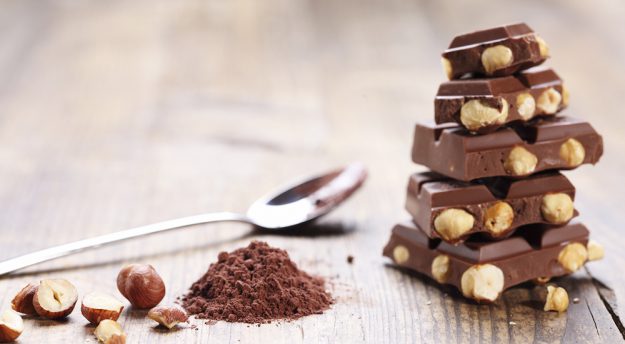Goodbye Cramps: 5 Foods to replenish your magnesium levels
mis à jour le 19 October 2016 à 00:00Do you often suffer from joint pain, cramps or spasms of the eyelids? It is likely that you are lacking in magnesium.

Magnesium is a mineral that is essential for the proper functioning of our body. It helps with the absorption of calcium, relieves muscle pain, helps us sleep better at night, balances the nervous system to help us cope with stress and anxiety, and definitely helps to relax us. Many foods provide good sources of magnesium - here are five.
CHOCOLATE
Chocolate is a good source of magnesium, but your quota will not be achieved by eating commercial chocolate that is packed with too much milk and sugar and not enough cacao. So don’t be so quick to load up on the addictive treat. It is purely the cacao that contains this mineral. When you’re at the supermarket, be sure to stock up on dark chocolate (the darker the better), or unsweetened cocoa powder if you’d like to make your own chocolate drinks at home.
NUTS
Often considered high in calories, nuts like almonds, cashews and hazelnuts are often treated unfairly - the fats they contain are largely “good” fats, and they also have real nutritional benefits. Rich in minerals, including magnesium, as well as vitamins and protein, nuts can provide a satisfying snack that will also reduce your appetite. In short, they are good for our health and provide essential fatty acids. Consume a handful each day as a snack and you’ll fill your quota of magnesium needs.
LEGUMES
All legumes (lentils, chickpeas, beans, peas) are rich in magnesium. They also contain plenty of fibre, allowing for better digestion, and contain complex carbohydrates that will help you to avoid the munchies. Chilli con carne, hummus, and dahl curries are good dishes to make that will cover part of your magnesium requirements.
CRUSTACEANS
Also rich in protein, shellfish are a good source of magnesium. From prawns and shrimp, to mussels, scallops and oysters, it is very easy to meet the body’s requirement of magnesium if you eat seafood often.
MINERAL WATER
Drinking mineral water can help to prevent magnesium deficiency. With the high content of trace minerals found in spring and glacial waters where many companies source their water from, it is good to indulge in a bottle or two of the stuff every few weeks. Hydration is just as important as healthy magnesium levels.
Thank you to Fourchette & Sante for this article.
Photo: Getty Images
Read more:
Monthly Moods: 10 Natural remedies to banish PMS symptoms
Success Tips: 10 Things you should be doing before you start the day
Superfood Spotlight: The many benefits of chia seeds



